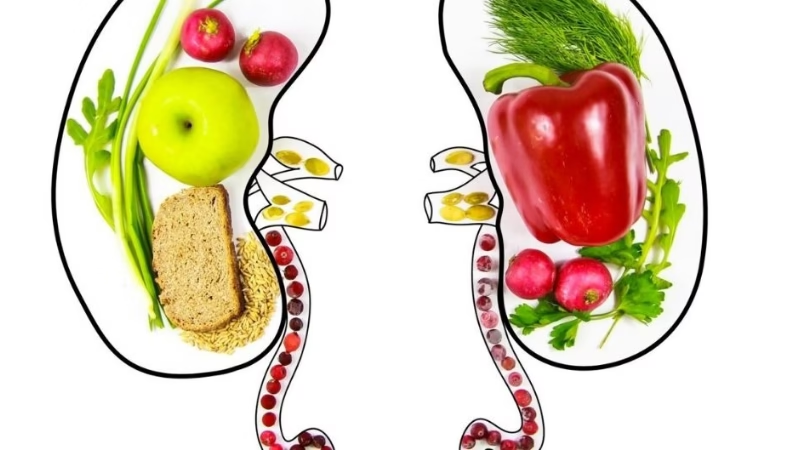Kidney Stone Diet Plan India: What To Eat To Prevent Recurrence
Kidney stones are solid lumps that form in the kidneys, which are quite painful and uncomfortable. If not avoided with the right measures, like a proper diet, they can recur. For individuals in India with kidney stones, it is important to follow a kidney stone diet plan to minimize the possibility of recurrence. With proper food selection, it is possible to reduce the risk of developing stones and maintaining good kidney function.
What Are Kidney Stones and Why They Form
Kidney stones develop when the minerals in the urine, such as calcium, oxalate, and uric acid, become overly concentrated and form crystals. These crystals may then aggregate to form stones, either large or small. Dehydration, too much salt, too high a calcium content, or very high-oxalate diets are contributing factors to the formation of kidney stones. Learning the contributing factors is the beginning in preventing recurrence.
Why a Kidney Stone Diet is Needed for Prevention
A kidney stone diet is needed to keep new stones from forming. Foods can influence the acidity or alkalinity of urine and the mineral concentration that contributes to stone formation. By making intelligent choices, it’s possible to avoid developing stones and maintain healthy kidney function.
Foods to Eat in a Kidney Stone Diet
Water: The simplest method to avoid kidney stones is to drink enough water. By drinking enough water, you dilute the concentration of substances causing stone formation, reducing the risk of crystal growth. Drink a minimum of 8-10 glasses of water per day.
Citrus Fruits: Citrus fruits like oranges and lemons contain citric acid that can avert kidney stones by binding to calcium and reducing its concentration in the urine. Taking these might be a natural preventive remedy.
Calcium-Rich Foods: Believe it or not, calcium-rich foods such as milk, yogurt, and leafy greens can actually prevent stones by binding to oxalates in the digestive tract and stopping them from being absorbed into the bloodstream.
Magnesium-Rich Foods: Magnesium prevents the development of kidney stones by inhibiting the crystallization of oxalates in the kidneys. Bananas, avocados, and spinach are great sources of magnesium.
Whole Grains: Brown rice, quinoa, and oats are rich in fiber, which maintains renal health and avoids stone formation.
Foods to Avoid with Kidney Stones
In an effort to reduce the chances of kidney stone development, there are foods that need to be avoided or consumed in moderation.
Oxalate-Dense Foods: Chocolate, tea, beets, and spinach are some of the foods that have a high amount of oxalates, and they can form bonds with calcium and contribute to the formation of stones. Avoiding these foods in case of being at risk of developing calcium oxalate stones is ideal.
Salt: Excessive sodium will lead to elevated urine levels of calcium, which enhances the risk of kidney stones. Take a low-sodium diet, and reduce processed foods and consume less salt during cooking.
Animal Proteins: Overconsumption of animal proteins such as red meat, eggs, and seafood will lead to an increased excretion of uric acid and calcium that constitute stones. Incorporate more plant proteins like tofu and lentils into your diet.
Hydration and Its Role in Preventing Kidney Stones
Hydration is crucial in the prevention of kidney stones. Adequate fluid intake dilutes the urine, so the substances that can cause stones do not concentrate and form stones. Take a minimum of 2-3 liters of water daily to maintain proper hydration.
When to See a Doctor About Kidney Stones and Diet
Even though dietary changes form a significant part of prevention of kidney stones, it is best to consult with a physician, especially if you have had kidney stones before. A medical practitioner can give you specific nutritional recommendations and help devise a diet plan as per your individual needs.
Conclusion
A diet for kidney stones is an effective method of preventing the formation of kidney stones. Drinking plenty of water, eating calcium- and magnesium-rich foods, and avoiding foods high in sodium and oxalates can help reduce the risk of kidney stones. These habits boost kidney function and overall well-being.



